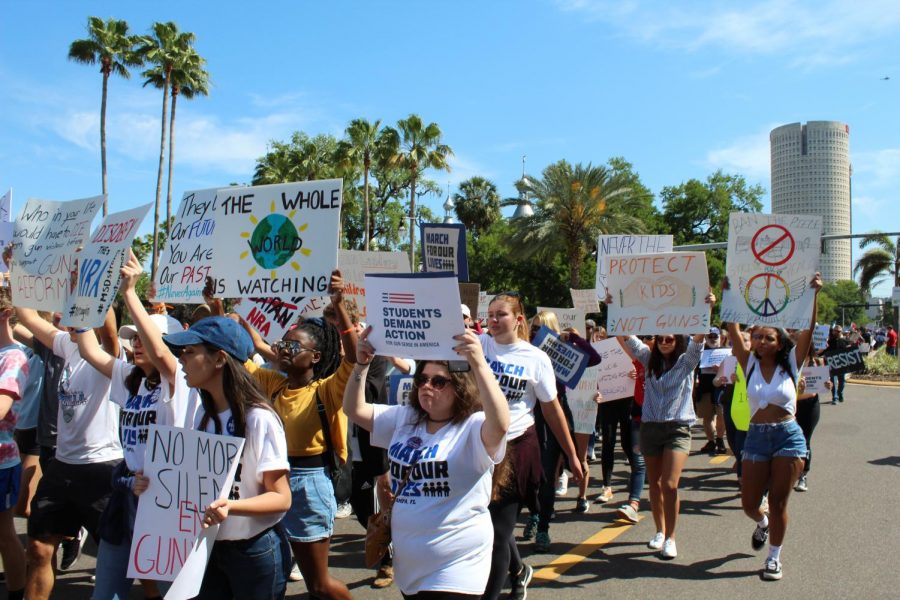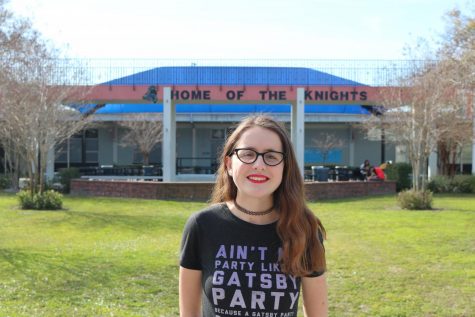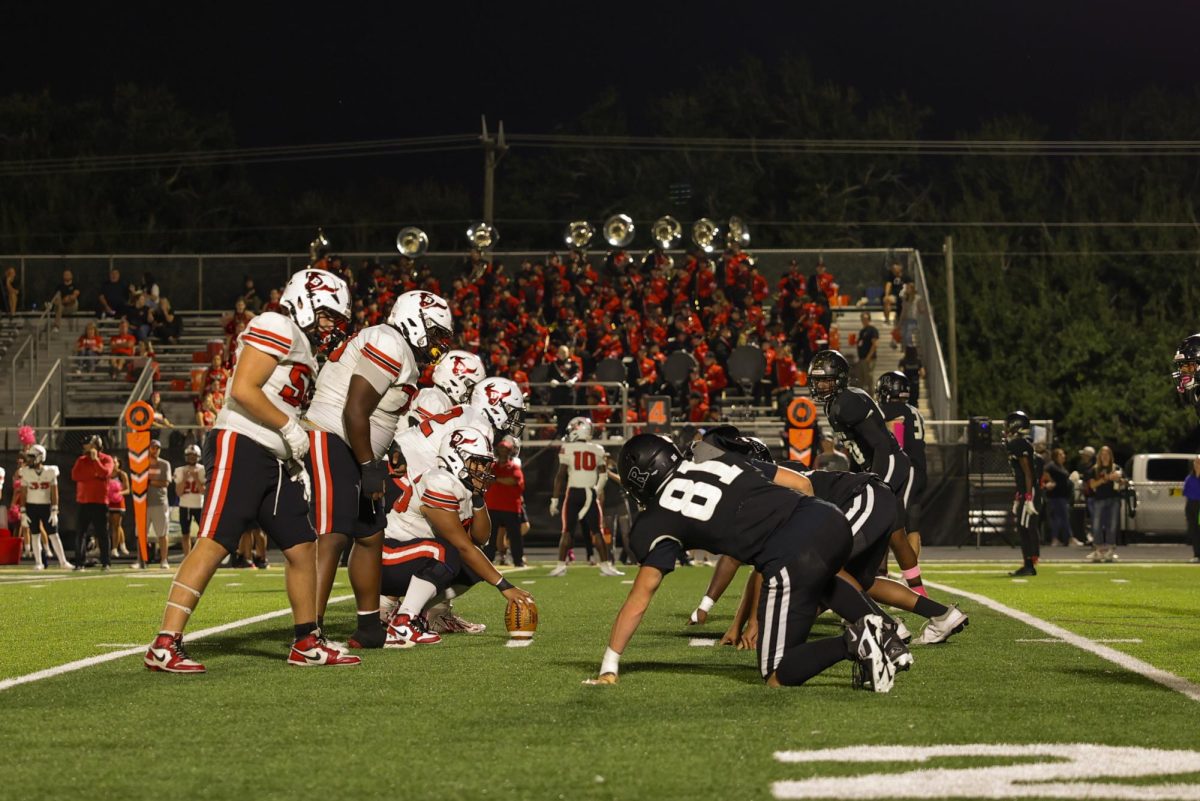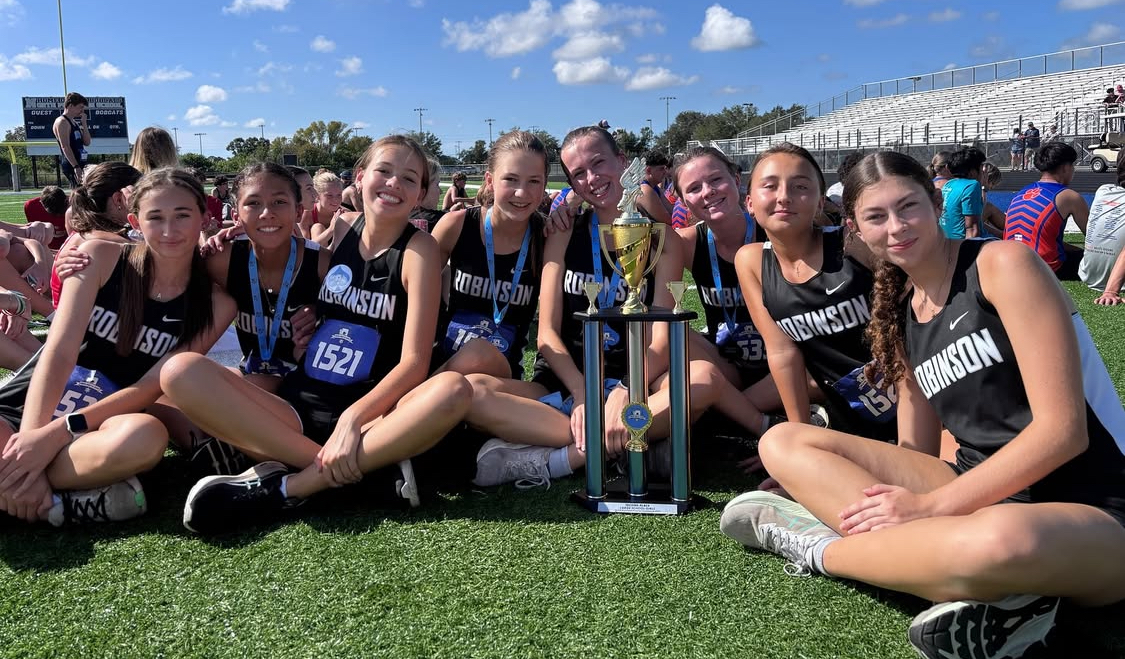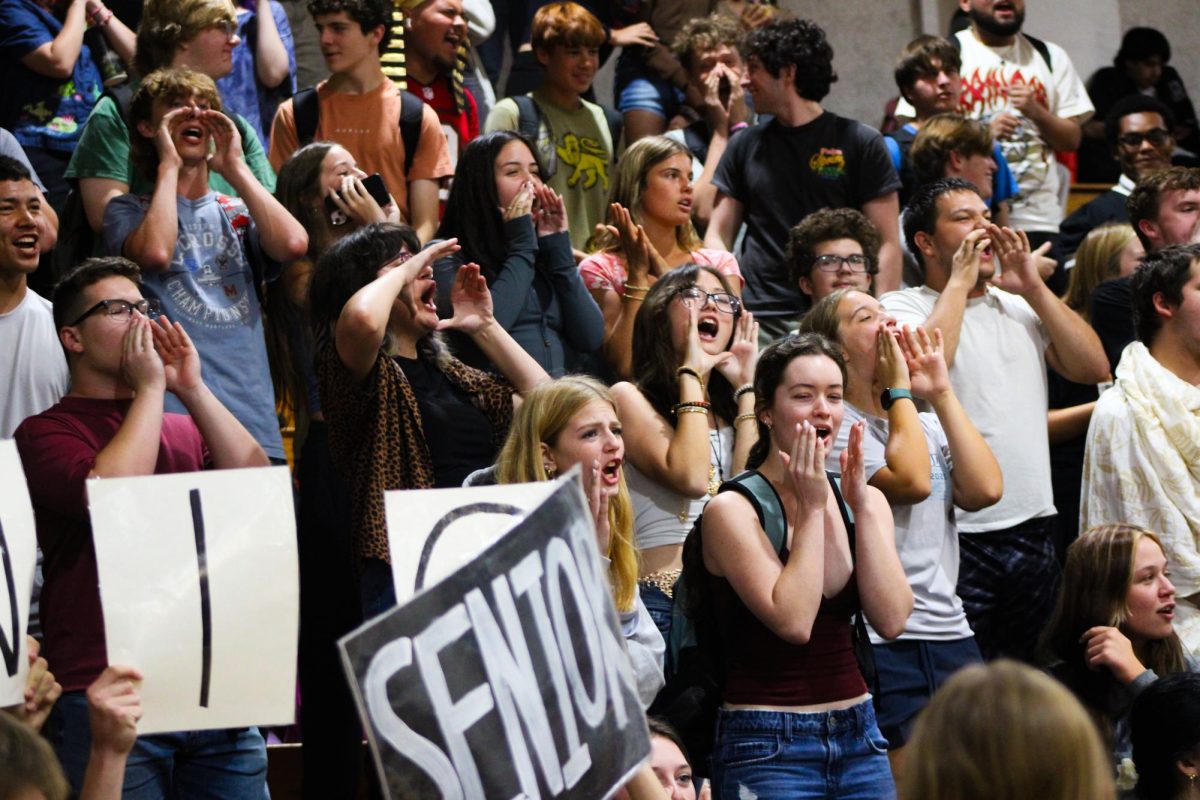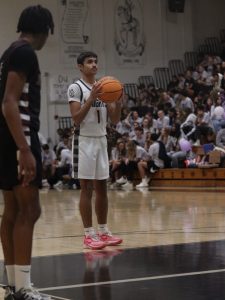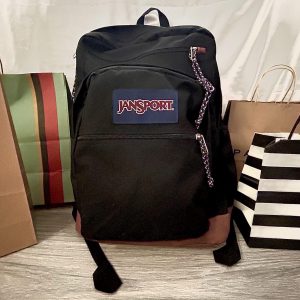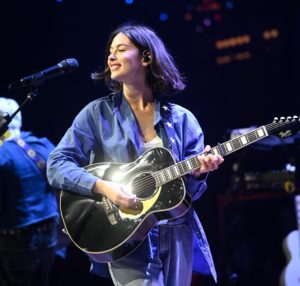“Enough is enough!” Tampa students send a clear message with March For Our Lives
Photo Jules Whitaker
Marchers hold up signs and declare call-respond chants while making their way down Kennedy Boulevard.
March 26, 2018
“Today, we are not settling for thoughts and prayers,” said Brooke Shapiro, a Plant High School senior, prompting a roar of approval from the crowd of thousands gathered at Kiley Garden Park in downtown Tampa for the March For Our Lives.
The march in Tampa last Saturday, March 24, was just one of over eight hundred that took place around the nation and the world calling for an end to gun violence. The march drew an estimated 13,000 people. Like the other protests, March For Our Lives Tampa was sparked by outrage and grief over the shooting at Marjory Stoneman Douglas High School in Parkland, Florida. It placed high school students front and center in the national debate surrounding gun control.
The event began with a rally in the Park, followed by a march through downtown Tampa. Students from different high schools in the Tampa area, including Robinson, Plant, Steinbrenner, Tampa Prep, Gulf Port and Blake, spoke at the rally, energizing the crowd with passionate speeches and performances.
Several local politicians, including Tampa Mayor Bob Buckhorn and Congresswoman Kathy Castor were in attendance, but the rally’s focus stayed with its young organizers.
“The grown-ups have screwed this up,” Buckhorn said in his speech. “We’ve messed this up, and we’re counting on you to fix this.”
Susana Matta Valdivieso, a survivor of the Stoneman Douglas shooting, spoke at the rally, delivering an impassioned call to action.
“To everyone who says it’s too early, not to talk about politics… we are not too early, we are 7,000 lives too late,” said Matta Valdivieso, citing the number of American children to die in school shootings since the Columbine High School shooting in 1990.
After the rally, newly energized protesters took to the streets carrying signs with slogans such as “Protect Kids, Not Guns” and “Never Again”, chanting “Enough is enough!” and “This is what democracy looks like!” Teenagers made up the majority of the crowd.
Many Robinson students were in attendance at the march, including Jalyn Alou (’20). Alou had never participated in a protest before March For Our Lives, but felt that the issue of gun violence was too important for him to stay home.
“The message is that all our lives should be safe, and that all our lives are important,” Alou said.
The Tampa march was truly a student-run movement, originating with Plant High School seniors Shapiro and Macie Lavendar. Students from 55 different high schools across Tampa contributed to organizing the march.
Robinson students Ryan Wind (’19), Macy McClintock (’19), and Alyssa Ackbar (’19) were all involved in planning and promoting the event.
“We want change,” Ackbar said. “We’re the future. We are the ones that are going to succeed [adult leaders] and that makes us really powerful.”
Savannah Lowry is a senior at Plant who has been involved in planning the march with Shapiro and Lavender from the beginning. Lowry says that the girls initially organized a chalk protest at Plant, but realized that they wanted to do more.
“Since 2016 alone, there have been 36,000 gun-related deaths in the U.S., and Florida itself is 3.5 times over that average,” Lowry said. “We all need to come together to create change, because obviously something is wrong. Obviously something isn’t working here.”
Heather Vecsey, a senior from Gulf Port high school reached out to Lavender as soon as she found out that Tampa students were organizing a protest, and is a member of March For Our Lives Tampa’s fundraising and outreach committees.
“I hope that legislators see that the time is now for them to change their opinion on taking money from the NRA and being funded by lobbyists for gun rights,” Vecsey said.
Placing pressure on elected officials to distance themselves from the NRA and pass gun control legislation was a key theme throughout the march, one that was stressed by both teens and politicians themselves.
“We’re tired of moments of silence after mass shootings, and then they don’t do anything,” Kathy Castor said. “I’ve been entirely frustrated, and I think it’s going to take the next generation to demand change.”
Another Robinson student in attendance, Logan Richardson (’19) echoed Castor’s faith in the younger generation’s ability to effect change.
“I think it’s good that students have a voice and that we speak up for what we believe,” Richardson said. “Without us, I feel like nothing will get done.”

